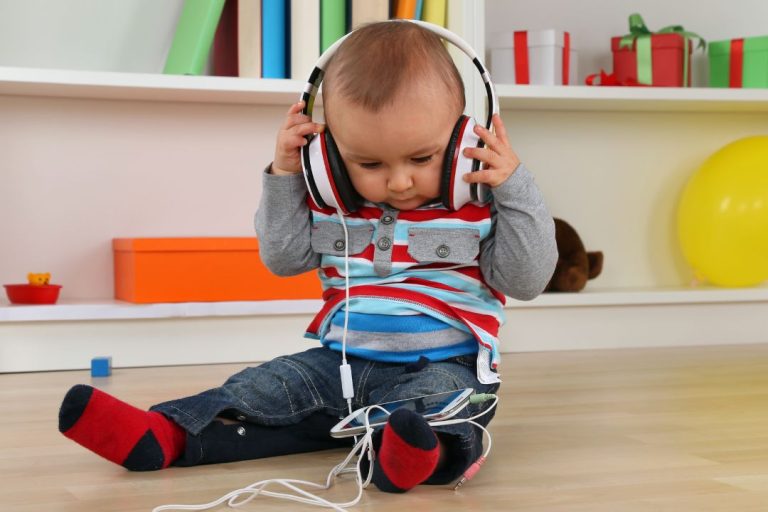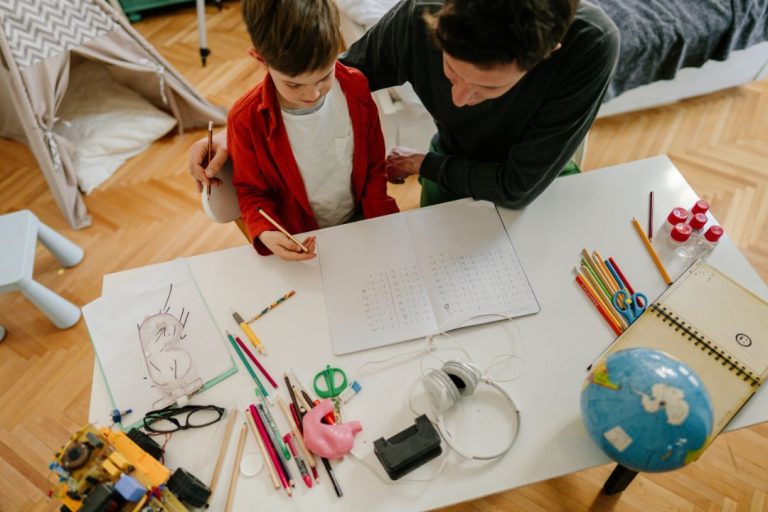How to Help a Child With Speech Articulation Problems

To help a child with speech articulation problems, seek the assistance of a speech-language pathologist to create a personalized treatment plan for the child’s specific needs. Speech therapy sessions, at-home practice activities, and consistent support from parents and caregivers are essential for improving the child’s articulation skills.
Additionally, practicing patience and providing a supportive environment will encourage the child to communicate effectively. Children with speech articulation issues can face challenges in social and academic settings. However, early intervention and targeted support can significantly improve their speech clarity and overall communication abilities.
By working closely with professionals and incorporating regular practice into the child’s routine, it is possible to help them develop clear and confident speech. This article will provide valuable insights and practical tips to assist parents and caregivers in supporting a child with speech articulation difficulties.
Recognizing Speech Articulation Issues In Children
Recognizing speech articulation issues in children is crucial for understanding and addressing their specific needs. By being aware of the signs and symptoms, common speech sound errors, and differences between developmental speech difficulties and articulation disorders, parents and educators can provide appropriate support for children with speech articulation problems.
Signs And Symptoms To Watch For
When assessing a child for speech articulation issues, it’s important to look out for the following signs and symptoms:
- Difficulty pronouncing certain sounds or words
- Frustration or avoidance of speaking
- Inconsistent errors in speech
- Difficulty being understood by others
- Struggling to imitate speech sounds
Common Speech Sound Errors
Children with speech articulation issues may commonly make errors in the pronunciation of certain sounds. Some of the most prevalent speech sound errors include:
- Substituting one sound for another (e.g., saying “wed” instead of “red”)
- Omitting certain sounds in words (e.g., saying “cool” instead of “school”)
- Distorting or misarticulating sounds (e.g., producing a lisp or “slushy” speech)
Differences Between Developmental Speech Difficulties And Articulation Disorders
It’s essential to differentiate between developmental speech difficulties and articulation disorders. Developmental speech difficulties are common in young children and typically resolve with age and practice. In contrast, articulation disorders involve persistent difficulty with specific speech sounds and may require intervention from a speech-language pathologist.
When To Seek Professional Help
If you notice that your child is consistently having difficulty pronouncing words or sounds, it may be time to seek professional help. While some mild speech articulation issues can resolve themselves over time, persistent problems may require intervention from a qualified speech professional.
Importance Of Early Intervention
Early intervention is crucial when it comes to addressing speech articulation problems in children. Seeking help at an early age can prevent potential developmental delays and help improve communication skills, social interactions, and academic performance. The earlier the intervention, the better the chances of successful speech improvement for the child.
Types Of Professionals Who Can Assist
Various professionals can assist children with speech articulation problems. Speech-language pathologists (SLPs) are specially trained professionals who can assess and provide therapy for speech and language disorders. Additionally, audiologists, pediatricians, and educators may also play a role in the evaluation and treatment process.
What To Expect During A Speech Evaluation
During a speech evaluation, the SLP will conduct a thorough assessment of the child’s speech and language skills. This may include observing the child’s articulation, fluency, voice, and language abilities. Additionally, the SLP may use standardized assessments and informal observations to gather information about the child’s speech development. The evaluation process aims to identify the specific areas of difficulty and create a treatment plan tailored to the child’s needs.
Tailoring The Home Environment For Speech Improvement
It is important to create a supportive and encouraging environment at home for children with speech articulation problems. A positive and nurturing atmosphere can help boost a child’s confidence and motivate them to practice their speech exercises regularly.
Family involvement is crucial in the improvement of a child’s speech articulation. Encouraging family members to actively participate in speech therapy exercises can enhance the child’s progress. If the family actively involves themselves, reinforcing new speech patterns becomes a natural and seamless experience for the child.
Several indirect techniques can be used to reinforce correct articulation at home. Incorporating speech practice into everyday activities such as storytelling, playing games, or having casual conversations can make the learning process more enjoyable for the child while they practice their speech.
Speech Enhancement Activities At Home
When parents notice that their child is having difficulty articulating sounds or forming words, it can be concerning. However, with the right support and guidance, children can make significant progress in improving their speech articulation. Speech enhancement activities at home play a crucial role in helping children with speech articulation problems. By engaging in fun and interactive activities, daily exercises, and utilizing technology and apps, parents can effectively assist their child in speech enhancement.
Fun And Engaging Articulation Games
Engaging in fun and interactive articulation games can make speech practice enjoyable for children. These activities not only help in the proper pronunciation of sounds but also encourage children to speak with confidence. Some popular articulation games include:
- Simon Says: This classic game prompts children to repeat words and phrases, reinforcing correct pronunciation and articulation.
- Word Building Blocks: Using word-building blocks, children can create words and practice saying them aloud, focusing on clear articulation.
- Tongue Twisters: Reciting tongue twisters can be a playful way to exercise the articulatory muscles and improve speech clarity.
Daily Exercises To Promote Clear Speech
Incorporating daily exercises into a child’s routine can aid in promoting clear speech. These exercises help strengthen the muscles involved in speech production and enhance articulation. Some useful exercises include:
- Blowing Bubbles: Blowing bubbles not only provides a fun activity but also helps in strengthening the oral muscles required for speech production.
- Lip and Tongue Exercises: Simple exercises like puckering the lips or touching the tongue to various points in the mouth can improve articulatory control.
- Breathing Exercises: Deep breathing techniques can support proper breath control during speech, contributing to clearer articulation.
Utilizing Technology And Apps For Speech Practice
Technology offers valuable resources for speech practice and enhancement. Utilizing speech therapy apps and digital tools can supplement traditional methods and provide additional support for children with speech articulation problems. Some beneficial options include:
- Articulation Station: This app offers interactive activities to target specific sounds and assist children in practicing articulation skills.
- Voice Analyst Apps: These apps provide real-time feedback on speech patterns, helping children modify their articulation for improved clarity.
- Speech Therapy Games: Various online games and interactive platforms are designed to make speech practice engaging and effective for children.
Strategies For Articulation Enrichment
When helping a child with speech articulation problems, it is crucial to employ meaningful and effective strategies for articulation enrichment. These strategies aim to provide tailored support for the child, helping them improve their speech articulation and boost their confidence in communication.
Breakdown Of Effective Speech Therapy Techniques
Effective speech therapy techniques for articulation enrichment involve a combination of various methods to address the specific needs of the child. These techniques can include:
- Articulation exercises: Targeted exercises aimed at improving the clarity and precision of speech sounds.
- Phonological awareness activities: Engaging activities that help the child become more aware of and manipulate the sounds of language.
- Oral motor exercises: Exercises focused on strengthening the muscles used in speech production.
How To Integrate Articulation Practice Into Routines
Integrating articulation practice into daily routines can significantly enhance the child’s progress. Consistent practice in natural settings can help reinforce the skills learned during therapy sessions. Some effective ways to integrate articulation practice into routines include:
- Storytime: Incorporating speech exercises while reading stories, encouraging the child to focus on specific sounds within the text.
- Mealtime conversations: Engaging the child in conversation during meals to provide opportunities for practicing speech sounds in a relaxed and familiar setting.
- Interactive games: Playing interactive games that require verbal communication, such as charades or word association, to make practice enjoyable for the child.
Importance Of Individualized Speech Goals
Setting individualized speech goals is crucial in ensuring that the child receives targeted and effective therapy. Tailoring speech goals to the specific needs and abilities of the child helps to establish a clear roadmap for their progress. Individualized speech goals also allow for personalized feedback and adjustments to the therapy plan, promoting steady improvement in articulation skills.

Credit: comprehensiverehabinc.com
Structured Articulation Exercises For Daily Practice
Examples Of Targeted Exercises For Common Articulation Problems
Articulation exercises are an essential part of speech therapy for children with articulation problems. Here are some examples of targeted exercises that can help improve the speech articulation of children with common problems:
- Minimal pairs: Practice words that differ by only one sound, such as “cat” and “bat.”
- Syllable repetition: Have the child repeat syllables with the problematic sounds, such as “ba-ba-ba” for /b/ or “ka-ka-ka” for /k/.
- Sound isolation: Focus on a specific sound in various positions within words, such as initial, medial, and final positions.
Tips For Maintaining Interest And Motivation In Young Children
Engaging young children in articulation exercises can be challenging, but there are several strategies to maintain their interest and motivation:
- Incorporate games: Turn articulation exercises into fun games by using props, such as a bean bag toss or a board game with speech-related tasks.
- Use visuals: Visual aids, like flashcards or colorful pictures, can make exercises more appealing and help children stay focused.
- Offer rewards: Providing positive reinforcement, such as stickers or small prizes, can motivate children to complete their exercises.
Tracking Progress Effectively
Tracking the progress of articulation therapy is crucial for ensuring the effectiveness of the exercises. Here are some ways to track progress effectively:
- Record recordings: Use audio or video recordings to track changes in the child’s speech over time.
- Keep a speech journal: Maintain a journal to document the child’s performance in articulation exercises, including any improvements or challenges.
- Regular assessments: Schedule regular assessments with a speech therapist to measure the child’s progress and adjust the exercises as needed.
Collaborating With Speech Therapists For Best Outcomes
Collaboration between parents or caregivers and speech therapists is crucial for the successful treatment of speech articulation problems in children. By working together, you can maximize the impact of therapy and ensure consistent improvement for your child.
How To Maintain Communication With Speech Professionals
To maintain effective communication with speech professionals, it’s important to establish a regular channel of communication. This can include regular face-to-face meetings, phone calls, or emails. Clear and open communication will allow you to stay informed about your child’s progress, understand the therapy techniques being used, and provide important feedback to the therapist.
Getting Involved In Therapy Sessions – What You Can Do As A Parent Or Caregiver
As a parent or caregiver, getting involved in therapy sessions can significantly enhance the outcomes for your child. You can actively participate by observing the therapy sessions, taking notes, and asking the therapist for demonstrations of activities that can be practiced at home. Engaging with the therapist during sessions will enable you to gain a better understanding of your child’s progress and the techniques being utilized.
Reinforcing Therapist Techniques At Home For Consistent Improvement
Consistency is key when reinforcing therapist techniques at home. Ensure that you understand the techniques being used by the therapist and work with them to create home activities that reinforce these techniques. Consistent practice at home will help your child internalize the skills being taught in therapy and make significant progress over time.
How To Help A Child With Speech Articulation Problems: Effective Strategies For Improvement
When a child struggles with speech articulation problems, it can be challenging for both the child and their parents. However, with the right strategies and support, significant improvement is possible. By combining home strategies with professional therapy, adapting strategies as your child grows and celebrates milestones while managing setbacks, you can effectively help your child improve their speech articulation.
Combining Home Strategies With Professional Therapy
Effective treatment for speech articulation problems often involves a combination of strategies implemented at home and in a professional therapy setting. Work closely with a speech-language pathologist to gain a clear understanding of the specific articulation difficulties affecting your child. In addition to therapy sessions, integrating consistent home practice activities, such as tongue twisters, speech games, and reading aloud, can reinforce the skills learned in therapy.
Adapting Strategies As Your Child Grows And Develops
As children grow and develop, their speech articulation needs and abilities evolve. It’s important to adapt strategies to suit your child’s changing requirements. Regularly consult with the speech-language pathologist to reassess your child’s progress and adjust the intervention plan accordingly. Encouraging age-appropriate conversations, practicing clear pronunciation during daily activities, and introducing new speech exercises can help challenge and develop your child’s articulation skills.
Celebrating Milestones And Managing Setbacks
Celebrating each improvement and milestone in your child’s speech articulation journey can positively reinforce their progress. Acknowledge their efforts and achievements, and provide consistent encouragement and support. However, setbacks may occur, and it’s important to manage them constructively. Maintain open communication with your child’s speech-language pathologist to address any hurdles that arise and adjust the treatment plan as necessary.
Frequently Asked Questions For How To Help A Child With Speech Articulation Problems
How Can I Tell If My Child Has Speech Articulation Problems?
Speech articulation problems may manifest when a child has difficulty pronouncing certain sounds or words clearly, leading to speech that is difficult to understand. Look for signs such as frustration when speaking, avoiding certain words, or being difficult to understand by unfamiliar listeners.
It’s important to consult with a speech-language pathologist for an evaluation.
What Are The Common Causes Of Speech Articulation Problems In Children?
Speech articulation problems in children can be caused by a range of factors, including developmental delays, oral motor issues, hearing impairments, and neurological conditions. Additionally, environmental factors such as a lack of exposure to language or the presence of speech disorders in the family can also contribute to speech articulation difficulties.
How Can Parents Help A Child With Speech Articulation Problems At Home?
Parents can support their child’s speech development by engaging in activities that encourage language and communication, such as reading together, playing word games, and practicing sounds and words in a fun and supportive manner. Encouragement, positive reinforcement, and seeking guidance from a speech-language pathologist are also crucial elements in assisting a child with speech articulation problems at home.
Conclusion
Helping a child with speech articulation problems requires patience, consistency, and a supportive environment. By implementing the strategies mentioned in this post and seeking professional help when necessary, you can empower your child to overcome their challenges and communicate more effectively.
Remember, every child’s journey is unique, so celebrate their progress along the way.

With over 20 years of experience in early childhood education, Jane brings a wealth of knowledge to Classroom Journey. She specializes in play-based learning and has a passion for inclusive education.





